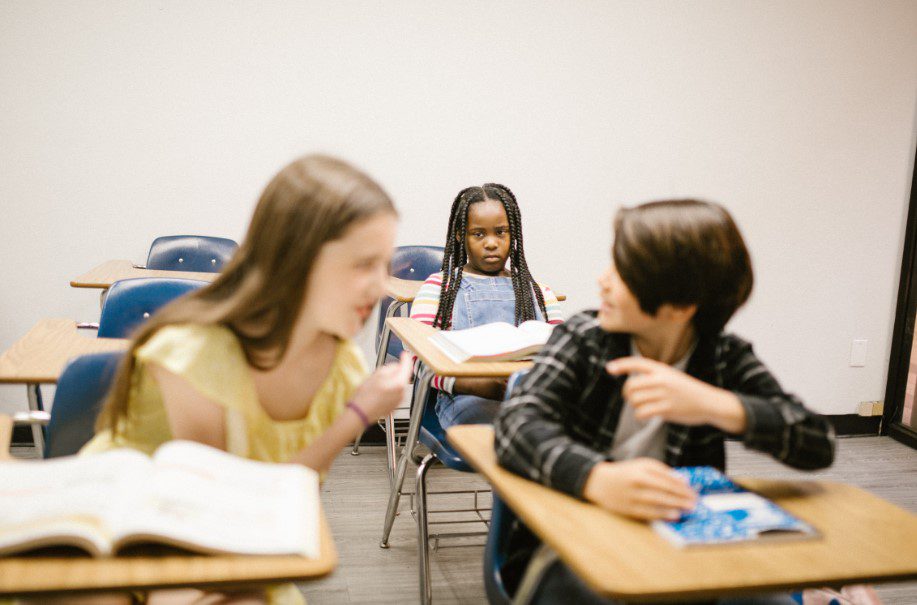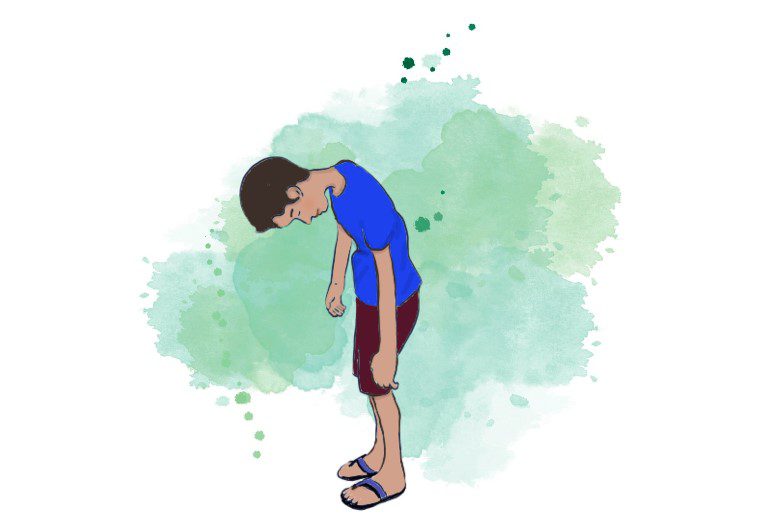Understanding mental illness in children and adolescents extends beyond their immediate well-being; it is an investment in their future. Yes, the journey through childhood and adolescence is rife with challenges, and it is only through informed parenting and awareness of their mental health that we could find lasting solutions for their wellness.
The consequences of untreated mental health challenges can echo through many aspects of your child’s life. It can affect their academic, social, emotional, and physical well-being.
Mental health problems affect the developmental opportunities of children and adolescents and may have effects into adulthood. More than half of all mental disorders in adulthood begin in childhood or adolescence.
NCBI
Promoting a supportive environment that encourages open communication is paramount in this journey. Parents, caregivers, educators, and other influential figures hold important roles in ensuring the normalization of mental health discussions.
… Defining Mental Illness …
Mental illness in children and adolescents refers to a range of mental health disorders or conditions that affect the emotional, cognitive, and behavioral well-being of individuals in the pediatric and adolescent age groups. These conditions can significantly impact a young person’s thoughts, feelings, and actions, potentially leading to difficulties in functioning, learning, and forming relationships. Examples include ADHD, anxiety disorders, depressive disorders, autism spectrum disorders, and eating disorders.
What Circumstances May Lead to Mental Illness in Children?

Mental illness in children and adolescents can be caused by a combination of genetic, biological, and environmental factors:
1. Genetics:
Genetic factors can play a role in increasing the risk of developing certain mental illnesses, such as depression, anxiety, and bipolar disorder. However, genes do not directly determine whether or not someone will develop a mental illness. Other factors, such as life experiences and environmental stressors, also play a role.
2. Biology:
Biological factors also contribute to mental illness. For example, imbalances in brain chemicals, such as serotonin and dopamine, can play a role in depression and anxiety. Other biological factors that may contribute to mental illness include:
- Brain structure and function
- Hormones
- Infections
- Immune system problems
3. Neurodevelopmental Disorders:
Conditions like ADHD, autism spectrum disorders, and learning disabilities can co-occur with mental health issues.
4. Cognitive Factors:
Negative thought patterns, distorted thinking, or poor coping skills can contribute to the development, or exacerbation of mental health disorders.
5. Chronic Medical Conditions:
Physical health issues or chronic illnesses can impact mental well-being. The stress and limitations associated with these conditions may contribute to the development of mental health problems.
6. The Environment:
Environmental factors can also play a role in the development of mental illness. These factors can include:
- Family Environment:
- Trauma:
- Abuse:
- Neglect:
- Poverty:
- Social isolation by peers:
- Bullying:
- Exposure to real life and violence in movies:
It is important to note that mental illness is not caused by any one factor. Instead, it is a complex condition that is likely caused by a combination of factors.
How to Recognize Mental Health Challenges in Children

Understanding how kids feel on the inside is like being a detective, looking for clues in their behavior. Imagine their behavior as a puzzle – it’s like the puzzle giving us hints about how they are feeling.
By paying attention to these signs and encouraging open talks, we can create a safe space for them to share their feelings.
A look at some of them:
1. Behavioral Changes:
Behavioral changes often serve as the first visible clues to an underlying mental health concern. Watch out for sudden shifts in demeanor, such as increased irritability, withdrawal from social activities, or unexplained anger. These alterations might be indicative of internal struggles that warrant attention.
2. Mood Swings:
Children, much like adults, experience a range of emotions. However, persistent and extreme mood swings might be cause for concern. Mood swings, especially those disrupting daily life, could signify an emotional imbalance that requires exploration.
3. Sleep Disturbances:
A child’s sleep patterns are integral to their overall well-being. Keep a keen eye on any deviations from their regular sleep routine. Sleep disturbances, such as insomnia or excessive sleeping, may suggest an underlying mental health issue.
4. Academic Challenges:
Academic performance often mirrors a child’s mental state. If you notice a sudden decline in grades or a disinterest in school, it might be more than just a passing phase. Academic challenges can be a manifestation of mental health struggles that need addressing.
5. Social Isolation:
Children are naturally social beings, and any deviation from their usual social interactions could signal an issue. Social isolation might manifest as a preference for solitude or a reluctance to participate in group activities. Recognizing this sign is pivotal for early intervention.
6. Physical Symptoms:
Physical symptoms can offer valuable insights into a child’s mental well-being. Unexplained headaches, stomachaches, or other physical complaints may be the body’s way of expressing emotional distress. Acknowledging these physical symptoms is vital in the holistic assessment of a child’s mental health.
7. Changes in Appetite:
The relationship between mental health and appetite is intricate. Changes in appetite, whether a sudden increase or decrease, can be indicative of an underlying emotional struggle. Monitoring eating habits provides a valuable window into a child’s mental state.
8. Communication Breakdown:
Communication is key in identifying mental health concerns. A sudden breakdown in communication – be it a reluctance to express emotions or share daily experiences – may signal internal turmoil. Encouraging open dialogue is crucial for fostering emotional well-being.
The Consequences of Untreated Mental Illness in Children

Unaddressed mental illness in children can have profound and lasting consequences, impacting various aspects of their lives. Here’s a closer look at the potential repercussions:
1. Academic Struggles:
Untreated mental health issues can significantly hinder a child’s academic performance. Difficulty concentrating, decreased motivation, and emotional turmoil may lead to a decline in grades and an overall disinterest in school. This academic struggle can have long-term effects on their educational trajectory.
2. Social Implications:
Children with untreated mental health issues often face challenges in social interactions. Social isolation, difficulty forming and maintaining friendships, and a reluctance to engage in group activities are common consequences. This can contribute to feelings of loneliness and a sense of not belonging, impacting their overall well-being.
3. Impact on Physical Health:
Mental and physical health are intricately connected. Untreated mental health issues can manifest physically, leading to headaches, stomachaches, and other psychosomatic symptoms. The chronic stress associated with untreated mental illness may also contribute to long-term health problems if not addressed promptly.
4. Risk of Substance Abuse:
Adolescents with untreated mental health issues may turn to substance abuse as a coping mechanism. This can exacerbate existing mental health challenges and lead to a cycle of dependence. Addressing mental health concerns early on is a preventive measure against the potential development of substance use disorders.
5. Increased Risk of Self-Harm or Suicide:
In severe cases, untreated mental illness in children can escalate to self-harm or suicidal ideation. The lack of intervention and support may contribute to a sense of hopelessness and despair. Timely mental health care is crucial in preventing these extreme outcomes and providing the necessary support for the child’s well-being.
6. Impaired Cognitive Development:
Mental health plays a crucial role in cognitive development. Untreated mental illness can impede cognitive functions such as memory, attention, and problem-solving skills. Early intervention is essential to ensure optimal cognitive development and academic success.
7. Strained Family Relationships:
The impact of untreated mental illness extends beyond the individual child to affect family dynamics. Behavioral challenges and emotional struggles can strain relationships with parents, siblings, and other family members. Seeking professional help can facilitate communication and provide strategies for family support.
8. Long-Term Emotional Consequences:
The emotional toll of untreated mental illness in childhood can extend into adulthood. Unresolved issues may manifest as persistent anxiety, depression, or other mental health conditions. Addressing these concerns early on is crucial for preventing the escalation of emotional difficulties into more severe and enduring challenges.
When & How to Seek Professional Help

If you observe signs of mental challenges in your child, seeking professional help is crucial if they are to transcend to better mental health.
Here are the steps you can take:
- Observe and Document Your Child’s Behavior:
- Always, ALWAYS, pay attention to changes in your child’s behavior, mood, sleep patterns, and academic performance.
- Document specific examples concerning behavior and any patterns you may notice.
- Talk to Your Child:
- Create a supportive and non-judgmental space for your child to share their feelings.
- Encourage open communication and let them know you are there to support them.
- Consult with School Professionals:
- Talk to teachers, school counselors, or other relevant school staff about your your child’s mental health. Discuss with them any observations that concern you.
- Collaborate with the school to address any academic or social challenges your child may be facing.
- Seek a Professional Evaluation:
- When you deem it necessary, schedule an appointment with a mental health professional, such as a child psychologist or psychiatrist.
- Share your observations and concerns during the evaluation.
- Follow Recommendations Through:
- If a mental health professional provides a diagnosis or recommendations, follow through with their guidance.
- This may include therapy, counseling, medication, or other interventions.
- The same is true with the findings from teachers and schools.
- Promote a Healthy Lifestyle:
- Encourage regular exercise, a balanced diet, social wellness, and sufficient sleep.
- Maintain open lines of communication about emotions and stressors.
- Monitor Progress:
- Keep track of your child’s progress and share updates with the concerned mental health professionals and teachers.
- Adjust interventions as needed based on their response to treatment.
Note:
Remember that seeking help early can make a significant difference in the outcome for a child with mental health concerns. If you are unsure where to start, consult with your pediatrician or family doctor, early on in your child’s life.
Some Useful Resources:
- National Alliance on Mental Illness: https://www.nami.org/
- Child Mind Institute: https://childmind.org/
- National Institute of Mental Health: https://www.nimh.nih.gov/





Leave a Reply